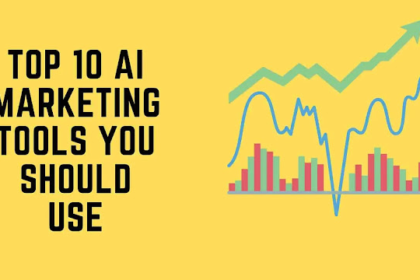1. Automation of Routine Tasks
With advancements in artificial intelligence (AI), the automation of routine tasks is increasingly becoming a reality in various sectors. This trend involves the use of AI algorithms to perform repetitive tasks traditionally handled by humans, freeing employees to focus on more creative and strategic endeavors. By integrating robotic process automation (RPA), organizations can streamline workflows, reduce operational costs, and enhance efficiency. Automated solutions such as chatbots and virtual assistants are transforming customer support, enabling businesses to offer 24/7 assistance, consequently boosting customer satisfaction.
- 1. Automation of Routine Tasks
- 2. Enhanced Decision-Making through Data Analytics
- 3. Personalization in Employee Training and Development
- 4. Improved Employee Well-being and Mental Health Support
- 5. Remote Work and Collaboration Tools
- 6. Smart Recruiting and Talent Acquisition
- 7. Enhanced Customer Experience through AI
- 8. Ethical AI Practices and Corporate Responsibility
- 9. The Rise of AI-Enhanced Creativity
- 10. Continuous Learning and Adaptation
- 11. Integration of AI in Employee Feedback Systems
- 12. Digital Twins for Workforce Management
- 13. AI in Operational Risk Management
- 14. Expansion of AI-Driven Supply Chain Management
- 15. AI-Driven Cybersecurity Solutions
- 16. AI as a Strategic Partner
- 17. Focus on AI in Diversity and Inclusion Initiatives
- 18. AI-Enhanced Knowledge Management Systems
- 19. Adaptive Work Environment Design
- 20. Agility in Organizational Structure
2. Enhanced Decision-Making through Data Analytics
AI is revolutionizing decision-making processes within organizations by harnessing data analytics. By using machine learning algorithms to analyze large datasets, AI can uncover patterns and insights that are often unattainable through conventional methods. Companies can leverage predictive analytics to make informed choices based on future trends instead of historical data alone. This trend enables businesses to identify opportunities and risks early, enhancing strategic planning and resource allocation.
3. Personalization in Employee Training and Development
The future of work is experiencing a shift toward highly personalized training programs powered by AI. Through learning platforms that adapt to individual needs, AI analyzes performance metrics and adjusts content delivery tailored to skill gaps. This personalized approach maximizes learning engagement and retention rates. For instance, organizations can implement AI-driven employee development programs that offer customized career paths, mentoring, and real-time feedback based on performance, thus nurturing a more skilled workforce.
4. Improved Employee Well-being and Mental Health Support
AI is playing a pivotal role in promoting employee well-being and mental health in the workplace. Advanced algorithms can analyze employee sentiment through feedback and engagement surveys to identify signs of stress and disengagement. AI-enabled platforms offer resources such as mental health assessments, recommendations, and self-care tools, fostering a healthier workplace culture. Employers who utilize AI tools to monitor and promote well-being often see a decrease in burnout rates and enhanced productivity.
5. Remote Work and Collaboration Tools
The shift towards remote work has accelerated the development of AI-powered collaboration tools. Solutions that leverage AI help facilitate communication, project management, and document-sharing, thus enhancing teamwork regardless of physical location. AI features such as intelligent scheduling and language translation foster seamless collaboration among diverse teams. Enhanced virtual workspaces provide a platform for real-time feedback and brainstorming sessions, contributing to innovation and collaborative problem-solving.
6. Smart Recruiting and Talent Acquisition
AI is transforming the recruiting landscape by streamlining the talent acquisition process. AI-driven algorithms can automatically screen resumes, rank candidates based on their qualifications, and optimize job postings for better visibility. Using natural language processing (NLP), recruitment platforms analyze candidate interactions in interviews or assessments, ensuring a more unbiased selection process. This technology not only saves time but also allows for a more diverse and inclusive hiring process.
7. Enhanced Customer Experience through AI
AI’s role in enhancing customer experience is indispensable. Through utilizing machine learning models, businesses can predict customer preferences and tailor services accordingly. Chatbots and virtual assistants can provide instant support, addressing common queries efficiently. Moreover, AI can provide valuable insights into customer behavior, enabling companies to understand trends and fine-tune their offerings. This ongoing interaction not only builds customer loyalty but also drives revenue growth.
8. Ethical AI Practices and Corporate Responsibility
As AI technology evolves, so does the emphasis on ethical practices and corporate responsibility. Organizations are now expected to adopt transparency in their AI implementations, ensuring the technology is used to create equitable outcomes for employees and customers alike. Companies are increasingly establishing ethical guidelines to mitigate biases in AI algorithms, addressing concerns about data privacy, security, and informed consent. Fostering an environment that prioritizes ethical AI usage will not only enhance brand reputation but also align companies with consumer expectations regarding corporate responsibility.
9. The Rise of AI-Enhanced Creativity
AI is also stirring a revolution in creativity within the workplace. Tools that harness AI can assist employees in generating innovative ideas, whether through copywriting software, music composition, or visual design applications. AI-powered creative tools analyze existing content to suggest improvements or new directions, unlocking a new realm of creativity. This trend empowers teams to push creative boundaries while saving time and resources during the brainstorming and creation phases, leading to groundbreaking projects and campaigns.
10. Continuous Learning and Adaptation
As AI technologies evolve, there is a growing need for continuous learning and adaptation among the workforce. Businesses must prioritize upskilling and reskilling initiatives to keep pace with technological changes. AI can assist in assessing employee skill levels and suggesting developmental tracks that align with future needs. Embracing a culture of continuous learning ensures that organizations remain competitive and resilient in the face of rapid changes brought about by technological advancements.
11. Integration of AI in Employee Feedback Systems
AI is transforming employee feedback systems by allowing organizations to gather and analyze feedback effectively and efficiently. Through AI-driven platforms, companies can conduct pulse surveys and sentiment analysis, providing real-time insights into employee morale and engagement. This data enables organizations to make informed adjustments to policies and work environments, thereby enhancing overall job satisfaction and performance.
12. Digital Twins for Workforce Management
Digital twin technology is emerging as a vital tool for workforce management. By creating virtual replicas of physical systems or employees, businesses can simulate different scenarios and optimize their workforce allocation accordingly. This trend allows organizations to forecast staffing needs, identify skill shortages, and better manage workflow processes, all while maximizing productivity.
13. AI in Operational Risk Management
Organizations increasingly rely on AI to strengthen operational risk management strategies. AI systems can analyze vast amounts of operational data, identifying potential risks before they escalate. Machine learning models help organizations monitor compliance in real-time, allowing for proactive measures that mitigate risks associated with regulatory breaches or infrastructural failures. Incorporating these capabilities into operational frameworks enhances resilience and stability in a volatile market.
14. Expansion of AI-Driven Supply Chain Management
AI is transforming supply chain management by providing real-time insights and forecasting capabilities. AI technologies can analyze diverse data sources, including market trends, demand patterns, and supplier performance, to optimize inventory management and logistics. By implementing AI-driven supply chain solutions, organizations can enhance their responsiveness to market dynamics, reduce costs, and improve customer satisfaction through timely deliveries.
15. AI-Driven Cybersecurity Solutions
As cyber threats continue to evolve, AI is emerging as a critical component of cybersecurity strategies. AI algorithms can detect unusual patterns and anomalies in network behavior, enabling organizations to respond to threats in real-time. AI enhances incident response through automated threat detection and analysis, reducing response times and minimizing the impact of cyberattacks. The incorporation of AI-driven cybersecurity solutions provides businesses with a more robust defense against potential breaches, safeguarding sensitive data and maintaining operational integrity.
16. AI as a Strategic Partner
Companies are beginning to view AI not merely as a tool but as a strategic partner in driving business objectives. As AI capabilities expand, organizations are incorporating AI systems into their strategic planning processes, enabling data-driven insights that inform long-term goals. Collaborating with AI fosters an agile approach to decision-making, allowing organizations to adapt to changes quickly and effectively while maintaining a competitive edge.
17. Focus on AI in Diversity and Inclusion Initiatives
AI technology is increasingly being utilized to enhance diversity and inclusion within organizations. Algorithms can analyze recruitment patterns to identify gaps in representation and assess the effectiveness of diversity initiatives. Additionally, AI can help dismantle biases in hiring processes by focusing on skills and qualifications rather than demographic factors. This focus on AI-driven diversity initiatives not only promotes a more inclusive workforce but also drives innovation by fostering diverse perspectives.
18. AI-Enhanced Knowledge Management Systems
The implementation of AI in knowledge management systems is facilitating knowledge-sharing across organizations. AI can index and categorize vast volumes of data, making it easier for employees to access relevant information quickly. This trend simplifies collaboration and ensures that critical insights are available when needed, promoting a culture of learning and innovation throughout the organization.
19. Adaptive Work Environment Design
Finally, AI is influencing the physical design of work environments. By analyzing employee behavior and preferences, AI can suggest modifications to office layouts that enhance productivity and collaboration. Smart office technology can optimize environmental factors such as lighting and temperature based on employee comfort levels. With data-driven insights shaping office design, organizations are creating adaptive workspaces that foster creativity and support employee well-being.
20. Agility in Organizational Structure
AI is fostering agility in organizational structures by enabling remote management and cross-functional collaboration. As teams become increasingly geographically dispersed, AI-driven tools are allowing easy coordination and project management across locations. The traditional hierarchical model is giving way to more flexible structures that promote collaboration and expedite decision-making processes. Increased agility aligns with the fast pace of today’s business world, ensuring that organizations can respond swiftly to challenges and opportunities alike.
By harnessing these trends, organizations can navigate the future of work effectively, ensuring they remain competitive and resilient in a rapidly changing landscape. Stakeholders must monitor these developments to leverage AI’s potential fully while fostering environments that promote innovation and adaptability.





